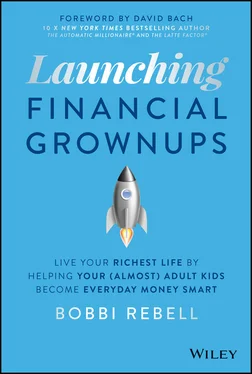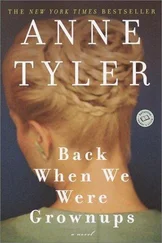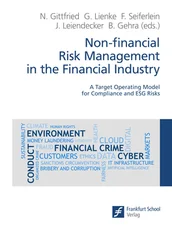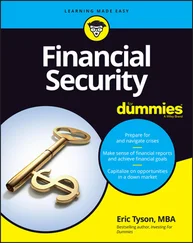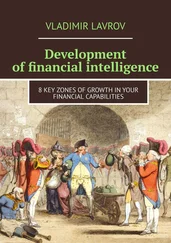Bobbi Rebell - Launching Financial Grownups
Здесь есть возможность читать онлайн «Bobbi Rebell - Launching Financial Grownups» — ознакомительный отрывок электронной книги совершенно бесплатно, а после прочтения отрывка купить полную версию. В некоторых случаях можно слушать аудио, скачать через торрент в формате fb2 и присутствует краткое содержание. Жанр: unrecognised, на английском языке. Описание произведения, (предисловие) а так же отзывы посетителей доступны на портале библиотеки ЛибКат.
- Название:Launching Financial Grownups
- Автор:
- Жанр:
- Год:неизвестен
- ISBN:нет данных
- Рейтинг книги:5 / 5. Голосов: 1
-
Избранное:Добавить в избранное
- Отзывы:
-
Ваша оценка:
- 100
- 1
- 2
- 3
- 4
- 5
Launching Financial Grownups: краткое содержание, описание и аннотация
Предлагаем к чтению аннотацию, описание, краткое содержание или предисловие (зависит от того, что написал сам автор книги «Launching Financial Grownups»). Если вы не нашли необходимую информацию о книге — напишите в комментариях, мы постараемся отыскать её.
Launching Financial Grownups
Launching Financial Grownups
Launching Financial Grownups
Launching Financial Grownups — читать онлайн ознакомительный отрывок
Ниже представлен текст книги, разбитый по страницам. Система сохранения места последней прочитанной страницы, позволяет с удобством читать онлайн бесплатно книгу «Launching Financial Grownups», без необходимости каждый раз заново искать на чём Вы остановились. Поставьте закладку, и сможете в любой момент перейти на страницу, на которой закончили чтение.
Интервал:
Закладка:
I'm still not all that thankful my parents made me take piano lessons. They insisted, I resisted, and I still think it was a waste of money. My mom clearly felt that piano lessons were worth whatever they cost at the time.
Still, I find myself repeating the same parental behavior. If I had asked my son to earn the money to pay for his drum lessons so he would appreciate them more because he had skin in the game, guess what would have happened? He would have said no thank you and dropped the drums. It simply isn't something he values at this age.
It's Not Your Imagination: Things Have Changed
Let's start with how things actually have changed for our children and for us. I mentioned earlier that Obamacare created a perceived benchmark of 26 years old for financial separation. Before that change, there was a lot more pressure for young adults to get a job that included health care as soon as they were thrown off either their parents' or university's health insurance. For many, the change was often timed to getting out of college.
Without the need to get – let alone pay for – health insurance, young adults were more free to pursue nontraditional career paths because they did not need to work for a company that would provide health insurance. It bought them time to explore their interests, perhaps even to become entrepreneurs or independent contractors. The timing was right, as so many jobs evolved in the gig economy. There's a lot that is wonderful about how things have evolved.
As parents, we have raised our children to pursue their passions, at times regardless of actual talent or aptitude. Who are we to say that they won't be successful? Maybe we don't know what it takes to succeed in their desired field, and they really are going to make it. We encourage them to keep at it, to participate even if they don't win, to do what they love regardless of whether there is a clear economic payoff. But what happens when their passion doesn't pay the bills for the lifestyle we have led them to believe they are entitled to have? Who can blame us for stepping in to subsidize the dream we told our children to go after?
When I decided I wanted to be a journalist, it was pretty clear to me that my Wall Street investment banker dad had his doubts. He knew money made life easier and wanted the best for me. TV news was not just brutally competitive; it didn't pay well unless you really made it to the top. He was also paying for my Ivy League education. He told me he would support me financially while I did an internship in journalism the summer before my senior year – but only if it was in business news. His idea was that covering Wall Street would make me want to go work on Wall Street.
My dad was probably thinking the odds of me getting on camera as a TV anchor were pretty slim. He didn't want to be the bad guy and squash my dreams. I got myself that unpaid internship at CNN Business News and worked overnights getting to know the business from the likes of Maria Bartiromo, Stuart Varney, and Lou Dobbs. So that's pretty much how I ended up as a financial journalist: a compromise by a concerned parent trying to balance his hopes, expectations, and ambitions for his child with his desire to support her passion. Suffice it to say, his hope was that I would transition to a lucrative financial job after college graduation. Decades later, even now that I'm a CFP ®, my father still asks when I'm going to get a job at an investment bank or a money management firm.
Getting back to the larger trends, in recent years student debt has exploded. That creates a huge roadblock for even the best prepared and most well-positioned new graduates to be financially independent of their parents. Students get a rude awakening when the first bill comes, and for many, cutting housing expenses by moving back home is actually the most financially astute decision for all the financial stakeholders. Remember, parents also take out loans to pay for their kids' education.
Home prices have skyrocketed, putting affordability out of reach for many young people. Wages have not kept up. And attitudes toward renting have changed. As a journalist I know data can be presented in many different ways, but there is compelling evidence that renting over buying is not always a bad financial decision, especially if your child wants flexibility with ever-changing economy and tax laws. At the very least, the idea of putting all your resources and stretching to buy a home has been put into question.
Liz Weston, CFP ®, is the author of six books about money as well as a finance columnist at Nerdwallet . She is also the mother of an 18-year-old daughter. Weston is concerned about young adults getting into homes they won't be able to afford and remembers the 2008 housing bubble burst and the mortgage mess that followed:
It used to be the advice to stretch to buy a house because there was inflation, and inflation would inevitably raise your wages and you could afford it down the road. Well, there hasn't been wage inflation for a very long time, at least not for the majority of Americans.
The Xbox Doesn't Take Cash
Paper currency has been dethroned as the dominant everyday way we pay for things. Sure, we still use cash, but if we are being honest, for many of us, credit and debit cards, Zelle, Venmo, Apple Pay, and endless other digital payment options are our go-to means of buying and paying for stuff. The pandemic, with its emphasis on not touching anything, further amplified the cashless trend.
The rise of digital currency has made many of our lives easier. As grownups, we can track our spending more easily because the receipts can be digital, relieving us of having to keep track of those pesky paper ones. Many of us no longer sit down and manually balance our checkbooks. Digital apps break down exactly where our money is going and leave little room for us to “hide” purchases.
But there are also consequences for us and for our children. Money just flows so much more easily when it is digital. Our kids grow up seeing us swiping credit cards or even just holding our phones up to receivers to pay for groceries when we take them with us to the store – if we even go to the store now that so much of our buying is online and completely invisible to them. Things just appear in boxes at our homes. Our kids don't see any finite amount of money we have to spend. We must deliberately and very proactively show our kids the cost of things and go out of our way to discuss budgets and spending limits.
I know what you are thinking: we can still take an envelope, fill it with cash, and then walk them through a grocery trip. I think that's a great idea. Maybe I should have done it. I haven't. I'm guessing many of you have not either. My kids see that when we go to the machine, money comes out if we need cash, so they don't have as strong a sense of the fact that it is limited, no matter how many times we tell them. They often aren't interested because they are looking at their phones anyway. Money comes through Venmo or Zelle in their world. How did this happen? Why don't they feel motivated to learn more about money? Why don't they care more?
When my youngest son was little, I labeled three jars Give, Save, and Spend, as recommended by parenting expert and New York Times columnist Ron Lieber, author of The Opposite of Spoiled , who we will hear from later. When my son's savings jar filled up, we took the coins to the bank to deposit. We had to put all the coins into rolls. It took us hours. He said he found the exercise of doing the rolling “soothing” and a nice mental break. We discussed how interesting it was that you needed so many pennies to have the same buying power as a quarter and how much more work it was to roll all those pennies.
Читать дальшеИнтервал:
Закладка:
Похожие книги на «Launching Financial Grownups»
Представляем Вашему вниманию похожие книги на «Launching Financial Grownups» списком для выбора. Мы отобрали схожую по названию и смыслу литературу в надежде предоставить читателям больше вариантов отыскать новые, интересные, ещё непрочитанные произведения.
Обсуждение, отзывы о книге «Launching Financial Grownups» и просто собственные мнения читателей. Оставьте ваши комментарии, напишите, что Вы думаете о произведении, его смысле или главных героях. Укажите что конкретно понравилось, а что нет, и почему Вы так считаете.
